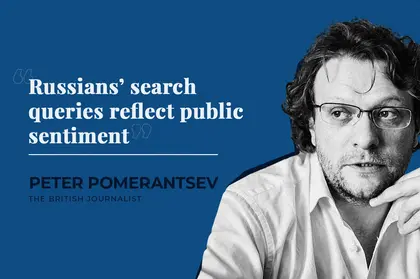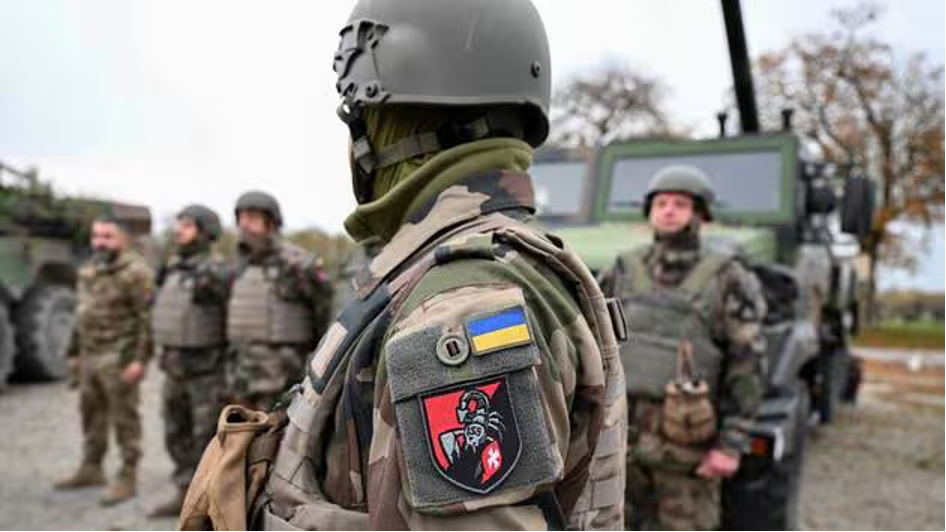Propaganda is an essential weapon in Russia’s war against Ukraine. Peter Pomerantsev, perhaps the world’s foremost authority on the state of Russian propaganda today, gave Kyiv Post an exclusive interview. The British journalist and author of This Is Not Propaganda and Nothing Is True and Everything Is Possible, spoke about the successes and failures of Russian propaganda, whether it is possible for Ukraine to counter it, and whether Elon Musk has, in fact, become the victim of Russian disinformation. The conversation took place during the Lviv Book Forum from October 6 to 9.
- Obtain the most recent updates on the Ukraine situation today.
- Find the newest Ukraine news pieces that came out today.
What is the current state of Russian propaganda? Is it still effective?
JOIN US ON TELEGRAM
Follow our coverage of the war on the @Kyivpost_official.
It is important to understand what one means by “effective propaganda.” Propaganda does not necessarily work like some kind of hypnosis. It can work like this, but for a short time. However, in the majority of cases, propaganda is just a way to send a certain signal. If you want to be a part of this society, you have to act within the established frames.
People are not passive slaves of propaganda; rather, they choose to live in this belief system because they like it. That’s why I don’t really believe in victims of propaganda.
In most cases, propaganda sends us signals about what can and cannot be said and done. Hitting your wife, children, Ukrainians, Kyiv is acceptable, but criticizing Putin is not. It’s a game. In this scenario, there’s no power vacuum. It’s not like “here is propaganda, and here are the authorities.” Propaganda is a part of this power and a part of this system. But it seems to me that the system is a little shaky now. It became evident after the partial mobilization was announced, which has caused more than 200,000 people to flee the country.
What about the probable changes in narrative and messaging by the Russian authorities? Especially in the context of Russia’s failures at the battlefield.
Russia is a country of humiliated people, it has always been this way. The land of those who get their sense of self-worth through Putin’s victories and wars on TV. And then these wars become real, but the people didn’t sign up for that.
It can be very intriguing to take a look at the share of people who feel they have mental issues, depression. This number has significantly grown lately. And one should monitor indicators like that – not the ones about the war apologists and adversaries, it’s all hogwash. One should focus on the indirect indicators. For example, the things Russians look up in Yandex [Russia’s main search engine] will tell you far more about public sentiment.
Who, in your view, is to blame for the collapse of the system? And were those who create this propaganda prepared for it?
I think that people creating propaganda understand everything, they conduct polls non-stop. But this is a classic example of a situation when leaders do not listen to sociologists. The Kremlin’s internal polls conducted by the Russian Public Opinion Research Center are accessible to the wider public. It is clear that they ask questions so that the Kremlin will get the answers it needs. But sociologists are already hinting to the authorities that the country is having a mental breakdown. Nobody listens to them, just like nobody listens to the military.
Can this mental breakdown among the Russians affect something in the Russian Federation?
You know, this is all court politics. It is not a real democracy, where public opinion can actually cause some changes. There are certain telltale signs that you are the “tsar” – you control the economy, violence, and public sentiment. People have to believe you and fear you just enough so you can maintain your high rating. But if you do not control the situation with violence, then you are doing something wrong, then you are no longer the “tsar.”
Public opinion can change the dynamics of court politics. But we don’t know how it will happen because we don’t see it.
What about the failures of propaganda outside the Russian Federation? For example, in Europe?
In Europe, the Russians lost a lot, their TV channels were simply shut down. They have big problems. Even in Germany, which used to be very loyal, opinions have changed. But the Russian Federation says it not interested in the West. It focuses on the New World, it has friends in Africa, Saudi Arabia, China, etc. It doesn’t care that Russia has lost Europe. Because it is doing very well in the New World.
Yet despite this, Russia continues to spread the message in Europe that Europeans are the only ones suffering from sanctions – whereas the Russians are not – and that Europe is going to freeze in the winter without Russian gas.
I wouldn’t call it messages. This is what official sources say, and then European politicians pick up on it.
Not only politicians. For example, Elon Musk picked up the hysteria and encouraged Ukraine to give up Crimea.
He has his personal interests. It didn’t happen because of misinformation. It has to do with the economy. Musk already openly states that he wants to cooperate with Russia.
But it’s important to understand that Musk is one of the most hated people in the United States. He is wildly unpopular. And his statements do not change anything. Still, if business elites who want to make money in Russia start putting pressure on the authorities, it can turn into a serious problem.
It’s clear that the Russian Federation is playing all its cards – its personal connections with the rich and the famous.
What is your evaluation of Ukraine’s resistance to propaganda on the global stage?
We can certainly talk about a complete victory in Europe and the U.S.A. In general, there is great sympathy for Ukraine in the West.
But in other regions of the world, everything is far more difficult for Ukraine – in Africa, Asia, etc. They believe Russia’s narratives about the evil West attacking the Russian Federation, and the Russian Federation defending itself, that all of this is a NATO war, etc.
Can Ukraine win over these narratives and drive out the propaganda in these regions?
We have to think selectively about countries and act accordingly. For example, Venezuela’s neighbors hate Russia because it supports the Venezuelan government, which caused the flow of refugees, war and generally induced hell in this part of Latin America.
We have to pick who is important for our country and work with them.
Do you think that in the event of Putin’s death, the propaganda will stop?
Sorry, but I don’t think that at all. Of course, we have to be prepared for any scenario. But there is something else we can influence.
I am surprised by the question – what should we do with Russia? The main thing for Ukraine now is to win the war. And create such a system of international security that Ukraine would enjoy the same level of protection as Poland and Estonia. This is what we need to address. As for Russia – it has its own dynamics, something strange is going on there. They are acting as a catalyst for their own end.
In your opinion, should Russian propagandists be prosecuted? Are they guilty of killing Ukrainians?
While it happens rarely, there have been cases when propagandists were found guilty of war crimes.
This is more of a philosophical question: What is media? What influence does it have? Because any propagandist can argue: Who is the victim of my words? And it is not easy to prove.
As for Russia, we see the integration of information into military operations. That is, information is a part of the operation. If it can be proven that propagandists are a part of this operation, then they will be a part of this process. But they will definitely have very good lawyers.
You can also highlight the text and press Ctrl + Enter



